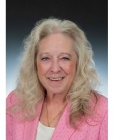July 2007

|
|
A Question of Integrity:
What to Look for in a True Mortgage Professional

|
|
Last month at YOU Magazine, we offered an in-depth study of the cyclical nature of the real estate market and how, historically, today’s market indicators fit into the overall picture. What we saw was a fascinating look behind the curtain of the American Dream, and we learned that great opportunities exist right now for those who are willing to see beyond the media-fueled frenzy and investigate the facts for themselves.
If you have purchased a home or are considering doing so in the near future, congratulations! By choosing to take control of your finances and looking into real estate as a long-term investment tool, you have taken the first important step towards ultimately reaching your financial goals. The next step, however, is also extremely important: finding the right person, a skilled and caring mortgage professional, to assist you in making the most of the opportunities available in today’s market.
This month, YOU Magazine will examine the characteristics of a true mortgage specialist, someone who will work to uncover and meet all of your needs and help put you on the firmest financial ground. The purpose of this article is to provide you with the questions you need to ask, the answers you should expect, and what a knowledgeable and reputable mortgage professional will want to know from you. But first, let’s start with some statistics to show you why teaming up with the right person is so vital to your success.
According to the Department of Labor, there were about 291,000 loan officers in the US in 2004. At this time, about 9 out of 10 loan officers were reportedly employed by commercial banks, savings institutions, credit unions, and related financial institutions throughout the nation. A year later, at the height of the recent real estate boom, research suggests that the expected growth of professionals in this field had soared far beyond the normal range, as tens of thousands of additional people entered the mortgage business.
For a while it seemed that everyone was looking to buy or refinance real estate, and demand for financing soared to record levels. What’s more, it seemed like everyone suddenly had a relative who was a loan officer! But, family or not, your ideal candidate will have extensive experience, and he or she will be around in the future to help you when the need arises.
With this in mind, a great place to begin in narrowing down your search is by asking people you know who seem extremely satisfied with the mortgage they have in place. And while we would hope that these close friends or family members wouldn’t steer you down the wrong path with their referrals, it’s still important that you investigate for yourself any and all referrals you might receive. Remember, the right mortgage professional can save you tens of thousands of dollars throughout the life of your loan!
Another great source is your real estate professional. The best real estate agents are great because they know who is active in their area and will do a good job for you. Again, this agent should be a seasoned professional, someone with experience in different market cycles who you believe can negotiate the best deal on your behalf.
Once you've narrowed down the people you’d like to interview, here are some basic questions you might want to ask to help weed out the most obvious of potential "bad apples." Remember, these questions are designed to test the knowledge of each candidate and are not the only questions that matter. Either way, trust your instincts, but always confirm your feelings with diligent research of your own. Never make an application with anyone until you are completely comfortable with what he or she has to offer.
What are mortgage rates based on?
Mortgage rates are based on mortgage-backed securities, not the 10-year Treasury Note as many misinformed and inexperienced loan officers might think. (See the mortgage article in the June issue of YOU to learn more.)
What impact does the Federal Reserve have on mortgage rates?
It doesn't. The Federal Reserve, or Fed, impacts short-term interest rates through the Fed Funds Rate, which dictates the overnight lending rate that banks charge each other. This has a direct impact on the Prime Rate, which affects consumer loans and many HELOCs. While the filter effect of changes in these short-term rates working their way through the system can impact mortgage rates, mortgage rates are directly impacted by trading in mortgage-backed securities, just like other stocks and bonds in the financial markets.
Should I lock or float the interest rate when I make my application?
A mortgage professional should be able to cite current or pending economic reports that could impact the direction of mortgage rates. If he or she makes the statement, "If I had a crystal ball..." or something to that effect, this isn’t someone you should be working with. Remember, economists are considered successful if their assessments are correct only 51% of the time! The professional you work with should be able to tell you, based on their insights, where rates are headed and why. Economic information for predicting interest rate activity can come from the Bureau of Labor Statistics Employment report, the Consumer Price Index, the Producer Price Index, Personal Consumption Expenditures, etc.
If I am putting less than 20% down or have less than 20% equity, should I pay PMI?
The answer here depends on your situation. What you’re looking to hear is some mention of the fact that, while PMI is tax deductible for qualified borrowers in 2007, its longevity for deductibility is not guaranteed and could be pulled by Congress at any time. The alternative is a "piggyback" loan that could be arranged in the form of a closed-end fixed-rate mortgage or a HELOC. The closed-end loan could well offer a lower rate without risk of interest rate and payment volatility.
What’s your rate?
Although here we included this question last, it is commonly one of the first questions that many consumers will ask a mortgage professional – especially over the phone. If you feel compelled to ask this question first, go ahead. However, if he or she offers you a specific rate in response without asking you any questions about your personal finances first, do yourself a favor and hang up the phone right away. This is not a person you want to be working with. By answering this question without first knowing anything about you or your finances, this person is, in essence, prescribing medicine without a proper diagnosis. After all, with literally hundreds of mortgage products available, there is no one-size-fits-all "cure."
Here are just a few of the questions a responsible loan professional will want to know before he or she ever quotes a rate:
How long do you expect to have this mortgage in place, or how long do you anticipate living in the home?
Research indicates that home buyers rarely stay in one home for thirty years anymore – especially first-time buyers. In fact, research shows a range between 3.5 years to 7.5 years is a more accurate estimate. With this in mind, knowing in advance how long you think you might live in your new home is essential to identifying whatever mortgage products and interest rates might best serve your particular needs. Without this knowledge, how could anyone with your best interests in mind actually quote you a rate?
Do you foresee a change coming in the next 3-5 years with regard to your finances, work environment, or family situation?
There are a number of both foreseeable and unexpected life events that can change your long-term financial situation: having children, children leaving the home, parents possibly moving in with you, job transfer, company cutbacks, inheritance, etc. A trustworthy mortgage professional will want to try to anticipate these changes to customize a plan to help you throughout your life.
What’s more important to you, having the lowest interest rate or spending the least amount of money while you have the mortgage in place?
This question reveals a lot about your personal needs as an investor. While some consumers are extremely conservative, others are willing to take on a little risk in order to reach their goals faster. Depending on your comfort level and how long you may have the mortgage in place, choosing what some might consider to be riskier products could save certain borrowers a lot of money.
We hope this article has been helpful in removing some of the uncertainty you may experience as you begin this important journey. Print out this article, study the questions, and add any that you feel might help you to find the right mortgage professional for you. Good luck!
|






